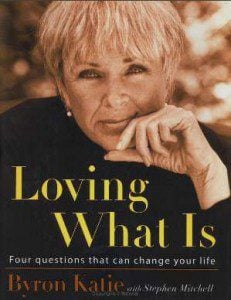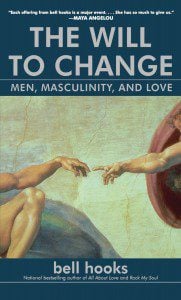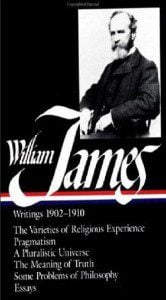3:1 My child, flee evil of all kinds, and everything like it. 2 Don’t be prone to anger, for anger leads
to murder. Don’t be jealous or quarrelsome or hot-tempered, for all these things lead to murder. 3 My child, don’t be lustful, for lust leads to illicit sex. Don’t be a filthy talker or allow your eyes a free reign, for these lead to adultery…. 5 My child, don’t be a liar, since a lie leads to theft. Don’t love money or seek glory, for these things lead to thievery. 6 My child, don’t grumble, since it leads to blasphemy, and don’t be self-willed or evil-minded, for all these things lead to blasphemy. 7 On the contrary, be gentle, since the gentle will inherit the earth. 8 Be long-suffering and pitiful and guileless and gentle and good, and with trembling, treasure the words you have received. 9 Don’t exalt yourself or open your heart to overconfidence. Don’t be on intimate terms with mighty people, but with just and lowly ones….. 4:14 In your gatherings, confess your transgressions, and do not come for prayer with a guilty conscience. This is the way of life! 5:2 The way of death is the way of those who persecute the good, hate the truth, love lies…. They are strangers to meekness and patience, loving vanities, pursuing revenge, without pity for the needy and oppressed…. They turn away from those who are in need, making matters worse for those who are distressed. They are advocates for the rich, unjust judges of the poor…. Be delivered, children, from all of this! …6:2 For if you are able to bear the entire yoke of the Lord, you will be perfect; but if you are not able, then at least do what you can.
Excerpts from Didache chapters 3-6
Last week we began a six-part sermon series on the ancient Christian document called the Didache (usually pronounced Did-ah-Kay). As a brief reminder, the title Didache literally means “The Teaching.” It is from the same Greek root as our English word didactic, which means, “designed or intended to teach.” Although this book was referred to by numerous early Christian writers, modern scholars presumed it was lost to the vagaries of history. Then, in 1873 a long-overlooked complete copy of the Didache was discovered as a small part of a larger anthology in the library of the Church of the Holy Sepulchre in Istanbul.
The Didache is dated to about the same time that Paul is writing his letters or a little afterward: the 50s of the first century, about twenty years after Jesus, but without any seeming knowledge of Paul’s work or of the Gospels, the first of which are a decade or more in the future. As late as the fourth-century, some prominent early Christian writers “even considered it to be on the fringe of the New Testament canon,” but it ultimately proved to be too locally popular and in too small a region to make the final cut for the most universally recognized collection that we know today as the New Testament.
Additionally, the Didache is one of our earliest examples of how Jesus’ message was adapted and compromised. This book is addressed not to radical itinerant peasant like Jesus and his original followers, but, as one Didache scholar says, to the householders as a manual for how “to adapt the way of Jesus to the exigencies of family, of occupation, of home — the very things that Jesus and his wandering apostles had left behind.”
To name only one example, Jesus says quite clearly in Matthew 10,
34 “Do not think that I have come to bring peace to the earth; I have not come to bring peace, but division. 35 For I have come to set a man against his father, and a daughter against her mother, and a daughter-in-law against her mother-in-law; 36 and one’s foes will be members of one’s own household. 37 Whoever loves father or mother more than me is not worthy of me; and whoever loves son or daughter more than me is not worthy of me….
These are harsh words of radical, itinerant discipleship. But, in stark contrast, we read in the Didache 4:3, “Do not initiate divisions, but rather bring peace to those who contend against one another.” This instance is one of the many places where we see Jesus’ more controversial teachings begin to be toned down.
Along these lines, in coming weeks we will consider the Didache’s instructions about Baptism, Eucharist, discerning prophets from charlatans, and church leadership. But this week I would like for us to explore a fairly large swath of the Didache, chapters 2-6. We heard last week in the Didache’s opening verse that, “There are two ways, one of life and one of death! There is a great difference between the two ways.” And the first six chapters are essentially a long list of examples of exactly what the ways of life and death look like according to the Didachist, the anonymous writer of the Didache.
In one word, what we see in the first six chapters of the Didache are rules. As one scholar has written, this book “represents the preserved oral tradition detailing the step-by-step training of gentile converts being prepared for full, active participation in the house churches committed to [Jesus’] Way.” And, from the perspective of the Didachist, one way to convert gentiles and distinguish them from the culture at large was to give them a set of “do’s” and “don’ts.”
Even in the brief excerpt we read, consider all the times that the Didache says, “My child”: “My child, flee evil of all kinds…. My child, don’t be lustful…. My child, don’t be a liar…. Be delivered, children, from all of this….” At least first part of this book is written from the perspective of a metaphorical parent mentoring a spiritual child in the faith. The aim seems to be to lay out a fairly dualistic, black and white account of what is right and what is wrong: Don’t blaspheme, exalt yourself, or be overconfident. But do be long-suffering, guileless, gentle, and good. “Don’t be on intimate terms with mighty people, but with just and lowly ones…. This is the way of life! The way of death is the way of those who persecute the good, hate the truth, love lies….”
Now, I can’t help but notice that this section of the Didache could also be instruction for the 2012 Presidential Campaign. The way of death is “loving vanities, pursuing revenge, without pity for the needy and oppressed…. They turn away from those who are in need, making matters worse for those who are distressed. They are advocates for the rich, unjust judges of the poor….” Now, I didn’t make those words up; they were written in the first century. But they remain eerily prophetic for those who design campaign attack ads.
As I have read and re-read this list of rules in the Didache’s first six chapters, I’ve been reminded of the good, the bad, and the ugly regarding the role of rules in the formation of converts. To speak of “the bad and the ugly,” rules can result in some of the worst stereotypes of religious groups. In polls, far too many people associate the word Christian with “judgmental, anti-homosexual, hypocritical, too political and sheltered.” Whatever your stance on various issues, those views — far too commonly associated with Christianity — are not the words that most of us would first associate with Jesus. What has gone wrong that Christians are not first associated with mercy, compassion, love, justice, healing, and wholeness?
To speak of the “good,” rules like we see in the Didache can sometimes results in incredible discipline, yielding unexpected transformation. Consider, for example, an interview I heard recently with a Western women who became a nun in a Korean Buddhist monastery for 10 years, where she followed a traditional path of practice and exploration. She says that:
We followed the schedule…in winter and in summer, you sit 10 hours a day for three months at the time. And then [in] the spring and the autumn, you sit four hours a day. And then in the daytime you can continue to sit if you want or you can go for walks or learn the language. It’s what’s called a bit of free time…. And then what you do is basically you get up at 3 o’clock in the morning. You sit two hours, 50 minutes. You sit and then you walk 10 minutes inside the Zendo, the Zen hall, but you walk at an ordinary pace for 10 minutes and then you sit again 50 minutes. Then you have breakfast around six-ish then you start again. In the morning you have three hours of sitting, afternoon four hours of sitting, and then in the evening you get two hours of sitting. And then in the middle of the day around 4 o’clock generally you have a working period.
In response, the interviewer, who is himself quite experienced in meditation says, “Wow. So this is really intensive practice that you’re doing then during these periods?” To which she gives the great response,
I would not say…. You see these 10 hours a day for Korean Buddhism…is not intensive…. Because you sit 10 and you sleep six. That’s really ordinary practice. It starts to get intense practice if you do 14 hours of sitting with only 4 hours of sleeping or if you do no sleep practice.
This extreme monastic disciplines makes all those rules from the Didache’s early chapters seems less severe.
Also in comparison to all these rules about the “way or life” versus the “way of death” in the Didache for training Gentile converts, I want us to think a little about the comparative twenty-first century training that is required to become a mainline Protestant Christian versus the training that is required to become, for example, a member of the Church of Jesus Christ of Latter Day Saints, or a “Mormon” for short. The Washington Post reported recently that, “The first major independent poll of U.S. Mormons describes a conservative, devout community highly concerned about being accepted even as it embraces beliefs about gender roles, premarital sex and religious commitment that are well outside the mainstream.” For example, “79% [of Mormons] said sex between unmarried adults is wrong, compared with 35% of the general population.” Again, we are confronted with the question of how our rules of religious formation are (or aren’t) challenging us to different from the culture around us.
These examples of different sets of rules in different religious communities bring us to what one writer on the Didache argues is one of the most significant verses in the book — chapter six, verse 2: “For if you are able to bear the entire yoke of the Lord, you will be perfect; but if you are not able, then at least do what you can.” The pragmatism here is admirable.
A major goal of the Didache, it seems, was to shape strangers into followers of Jesus’ Way — to form them into people able to be full participants in the “way of life,” the kingdom of God, the Beloved Community. But even as the Didachist listed many explicit instances of how one’s actions could contribute to the “way of life” or the “way of death,” deep experience with the human condition shines through in the admonition that, “if you are able to bear the entire yoke of the Lord, you will be perfect; but if you are not able, then at least do what you can.” This contention may water down the way of Jesus, but for those us not quite ready to follow Jesus’ commandment to the Rich Young Ruler that, “If you wish to be perfect, go, sell your possessions, and give the money to the poor, and you will have treasure in heaven; then come, follow me” (Matthew 19:21), then perhaps the Didache provides a Middle Way: “For if you are able to bear the entire yoke of the Lord, you will be perfect; but if you are not able, then at least do what you can.”
In the contemplative silence to follow, listen for how God is speaking to you this morning. In what ways is God calling you to “bear the entire yoke and be perfect?” And in what ways is God calling to relax, let go, and do only what you can?”
For Further Study on the Didache
- Aaron Milavec’s The Didache: Text, Translation, Analysis, and Commentary is an accessible, condensed version of his massive tome The Didache: Faith, Hope, and Life of the Earliest Christian Communities, 50-70 C.E.
- Tony Jones’ The Teaching of the Twelve: Believing & Practicing the Primitive Christianity of the Ancient Didache Community is another accessible entry point. And there is a supplemental DVD.
- Thomas O’Loughlin, The Didache: A Window on the Earliest Christians.
- Read the text of the Didache for yourself free online at http://www.paracletepress.com/didache.html.
Previous Sermons in this Series
- Preaching the Didache: What Is Your Canon and Why? (Didache 1). Available at http://www.patheos.com/blogs/carlgregg/2012/01/preaching-the-didache-what-is-your-canon-and-why/.
Notes
1 For more on the history of the Didache’s modern rediscovery, see Tony Jones, The Teaching of the Twelve: Believing & Practicing the Primitive Christianity of the Ancient Didache Community, 4-5.
2 “the Didache does not depend on Matthew or any other Gospel.” — Milavec, The Didache: Faith, Hope, and Life of the Earliest Christian Communities, 50-70 C.E., 789:
3 “even considered it to be on the fringe of the New Testament canon” — Bruce Metzger in The Canon of the New Testament: Its Origin, Development, and Significance (49) is referring to Eusebius (c. 263–339 C.E.) and Athanasius (c. 296-373 C.E.).
4 The Didache was a manual for how “to adapt the way of Jesus to the exigencies of family, of occupation, of home — the very things that Jesus and his wandering apostles had left behind.” — Aaron Milavec, The Didache: Text, Translation, Analysis, and Commentary, x:
5 “represents the preserved oral tradition detailing the step-by-step training of gentile converts being prepared for full, active participation in the house churches committed to [Jesus’] Way.” — Milavec, The Didache: Faith, Hope, and Life of the Earliest Christian Communities, 50-70 C.E., vii.
6 On some of the deeply disturbing problems of the 2012 Presidential race, see Thomas B. Edsall’s article “The Reinvention of Political Morality” in The New York Times. Available at http://campaignstops.blogs.nytimes.com/2011/12/05/the-reinvention-of-political-morality/.
7 “judgmental, anti-homosexual, hypocritical, too political and sheltered.” — see David Kinnaman, unChristian: What a New Generation Really Thinks about Christianity… and Why It Matters.
8 Hear or read the interview with the former Korean nun Martine Batchelor (Buddhist Geek 242: “Practicing at the Crossroads”) at http://www.buddhistgeeks.com/2012/01/bg-242-practicing-at-the-crossroads/.
9 On the Mormon poll, see “Poll finds Mormons worry about acceptance but embrace differences” in The Washington Post.” Available at http://www.washingtonpost.com/local/poll-finds-mormons-worry-about-acceptance-but-embrace-differences/2012/01/10/gIQAPCxRsP_print.html.
The Rev. Carl Gregg is a trained spiritual director, a D.Min. candidate at San Francisco Theological Seminary, and the pastor of Broadview Church in Chesapeake Beach, Maryland. Follow him on Facebook (facebook.com/carlgregg) and Twitter (@carlgregg).












